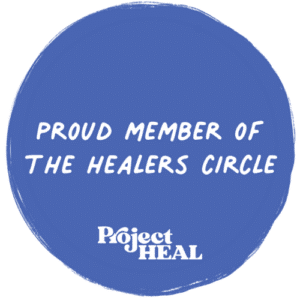If someone you love suffers with an eating disorder, they’re lucky to have you. You’re here, reading this article because you care. And there’s nothing more meaningful for a person hoping to overcome an eating disorder than a supportive friend or family member. Today we’ll talk about a few effective ways you can help.
Believe that you can make a difference.
First things first: trust that you—yes, you—might be key to your loved one getting the help they need to overcome an eating disorder. In fact, according to the National Eating Disorder Association, friends and family are routinely cited as the reason a person with anorexia, bulimia, or binge eating disorder finally decides to get help. (1) You could be the reason for the person you love.
Learn more about what your loved one is going through.
Do your research on eating disorders. Learn about why a person might suffer from one, and what life might look like from their perspective. You can also read about treatment options and make note of what could work best for your friend or family member.
Lead with empathy.
Lean on empathy. Empathy allows you to consider how the other person might be feeling even though you’re not in their shoes. It helps you to care unselfishly. It also helps you to keep your friend or family members’ best interests in mind. This means you’ll not only lead with empathy, but you’ll also speak the truth in love.
Speak the truth in love.
Eating disorders are dangerous and can even be fatal. (2) For this reason alone, we encourage you to speak up if you notice eating behavior in a friend or family member that is concerning. You can be kind and firm when you say something like, “I love you. You need help, and I’m here to support you in any way I can.”
Avoid talking about bodies or food.
Unless you’re discussing your concerns in a conversation aimed at getting help for your loved one, it’s best not to talk about bodies or food in any way. You might think it’s okay to make positive comments, but you never know how your words will be received—and what type of reaction your words might inspire. It’s best to keep food and body comments to yourself. (3)
Consider what actions you can take to support healthy behavior.
WebMD cautions family and friends to consider how you might accidentally be enabling your loved one’s eating disorder. Then look for actions you can take that will directly or indirectly support healthy eating habits instead. (3)
Involve your loved one in activities outside of mealtime.
Eating around others can be stressful for someone with an eating disorder. (2) Makes sense, right? Consider inviting your friend or family member to do something fun outside of mealtime—you might go for a leisurely walk, watch a movie, or play a game.
We already know you want to support your loved one—that’s why you’re here! Now you just need to go out and do it. If you need help along the way, find the location nearest you today.
Resources





